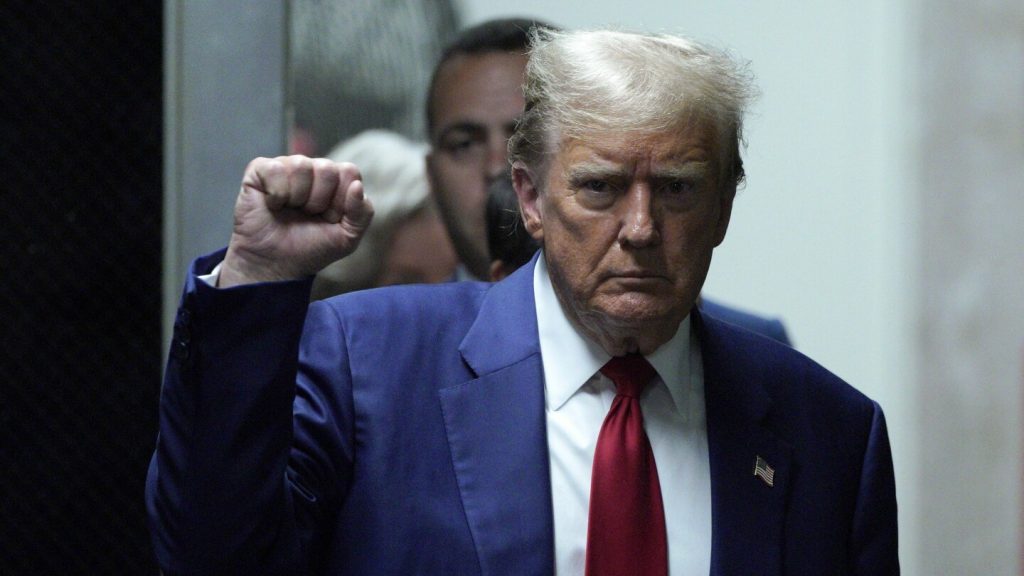In a recent interview with Time magazine, President Donald Trump stated that if he was reelected, he would utilize the National Guard as part of efforts to deport millions of migrants across the country. Trump emphasized the need for safety and law and order in the country, suggesting that the National Guard would be sufficient for the job. This marks a significant escalation in the use of military forces in immigration enforcement, as historically they have been used primarily for border security.
Although Trump did not provide specific details on how the deportation operations would be carried out, he mentioned that he would not hesitate to use active duty military if necessary. During his first term, the Department of Homeland Security had considered using the National Guard to round up unauthorized immigrants, but the plans never materialized. Previous presidents, such as George W. Bush and Barack Obama, have utilized National Guard forces for border security in operations like “Operation Jumpstart” and “Operation Phalanx.”
While the military has been used at the border in various capacities, such as surveillance and logistical support, using them for direct deportation operations within the country would present legal challenges. The Enforcement and Removals Operations arm of Immigration and Customs Enforcement is typically responsible for identifying, arresting, detaining, and removing individuals who do not have the right to stay in the U.S. Trump’s tough stance on immigration has been a central focus of his reelection campaign, with promises to crack down on migrants and prevent birthright citizenship.
Federal law generally prohibits the use of active-duty service members for law enforcement within the U.S. without specific authorization from Congress. When asked about potentially overriding these restrictions, Trump justified his stance by referring to unauthorized immigrants as invaders. He has previously characterized migrants as a threat to the country and has referred to those suspected of committing crimes as “animals.” Trump’s anti-immigration rhetoric has been a defining feature of his presidency, with policies such as the travel ban targeting Muslim-majority countries.
Despite facing backlash for his immigration policies, including family separations at the border, Trump has continued to prioritize border security and deportation efforts. His willingness to use the National Guard for deportation operations indicates a continued commitment to his hardline stance on immigration. As the presidential campaign heats up, immigration is expected to remain a contentious issue, with Trump doubling down on his anti-immigrant rhetoric in an effort to appeal to his base of supporters.


